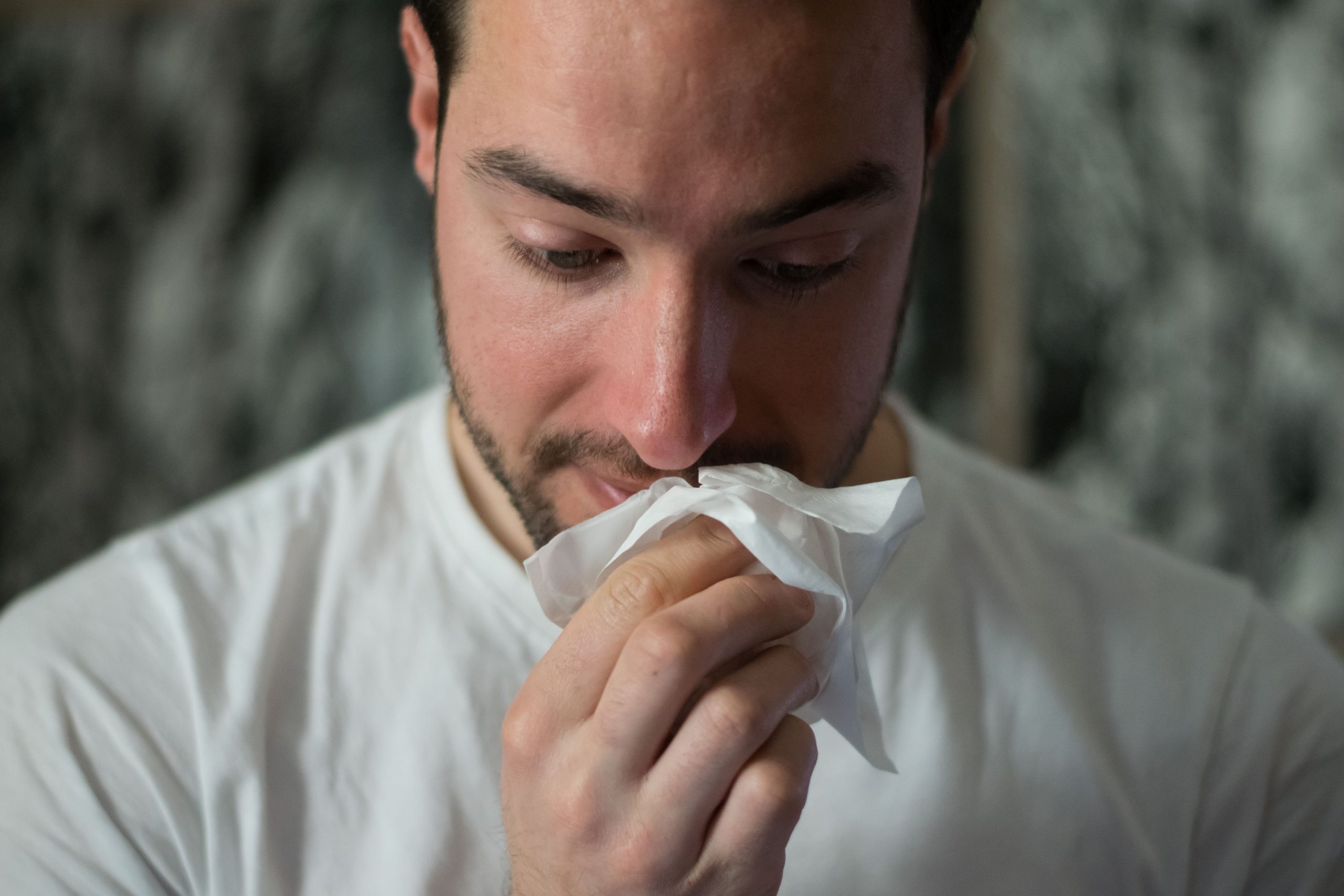What you need to know about the 3 fall vaccines, according to U of T experts
October 4/2023
Here is what these U of T experts want Canadians to know about the new RSV vaccine, the updated COVID-19 vaccine, and this year’s flu shot.
By: Ishani Nath and Betty Zou
As cold and flu season approaches, Canadians are facing respiratory syncytial virus (RSV), an increase in COVID-19 activity, and influenza — but also have new options to protect their health.
Last year, surging RSV infections among children, COVID-19 variants and flu season caused what health experts termed a ‘triple-demic,’ pushing adult and pediatric hospitals beyond capacity. Shelly Bolotin, director of the Centre for Vaccine Preventable Diseases (CVPD) and a member of the Emerging and Pandemic Infections Consortium (EPIC) at the University of Toronto, says it’s “quite possible” these viruses could overlap again this year. The result could be another ‘triple-demic,’ making many people very sick and potentially overwhelming our health-care system.
But with an updated COVID-19 vaccine and a RSV vaccine now approved for Canadians over 60, this year does not have to be a repeat of last year. “We have an opportunity to be better prepared this time by preventing infection with vaccination and dampening the impact of this respiratory virus season,” says Bolotin.
To learn more, we spoke with Bolotin, Shaun Morris, a pediatric infectious disease physician at the Hospital for Sick Children, and Allison McGeer, an infectious disease specialist at Toronto’s Sinai Health. Morris and McGeer are both members of CVPD and EPIC and faculty members at U of T’s Dalla Lana School of Public Health and Temerty Faculty of Medicine. Here is what these U of T experts want Canadians to know about the RSV vaccines, the new COVID-19 vaccine, and this year’s flu vaccine.

(From L to R) Allison McGeer, Shaun Morris, and Shelly Bolotin
The new RSV vaccine
RSV is a common and highly contagious viral cause of respiratory illness in older adults and children. In most people RSV causes a mild illness not unlike the common cold. However, young children, people over age 60 and those with chronic lung or heart conditions or a weakened immune system are at higher risk of developing severe RSV infections that may require hospitalization. In children, RSV is a major cause of ICU admissions because as Bolotin explains, “young children are more likely to experience severe infection when it’s their first time being exposed to RSV.”
Earlier this year, Health Canada approved two new interventions that could help reduce the burden of RSV among vulnerable populations. The first, called Arexvy, is the first Health Canada-approved RSV vaccine. According to clinical trial results published in the New England Journal of Medicine, a single dose of Arexvy was over 82 per cent effective in preventing RSV lung infections in people aged 60 and older and over 94 per cent effective in preventing serious illness in that age group.
The second is an antibody drug called nirsevimab intended to protect babies during their first RSV season. Compared to the currently available RSV antibody drug palivizumab, which requires monthly shots to maintain effectiveness, a single dose of nirsevimab provides lasting protection for the entire RSV season. Nirsevimab has been approved by Health Canada for use in children up to two years of age, but is not available yet. Morris expects it will likely be more available in time for next year’s RSV season.
Who can get the RSV vaccine?
Arexvy is approved for use in people aged 60 and older. “In Ontario, the vaccine will only be available to individuals 60 years or older who live in long-term care homes, Elder Care Lodges, and for some retirement home residents,” says Bolotin. McGeer notes that older adults may also be able to pay out-of-pocket for the vaccine with a prescription from their doctor.
When should you get the RSV vaccine?
According to McGeer, RSV season typically starts in October in kids and a little later in adults and lasts until early spring. “As far as we can tell, protection from the vaccine lasts 18 months so it’s fine to get your RSV vaccine anytime in October,” she says.
How will the RSV vaccine make a difference?
With the limited availability of Arexvy this year, our experts agreed that it’s hard to predict just how big of an impact it will have on reducing RSV transmission in the community. But they all stressed the importance of protecting vulnerable seniors from serious illness and hospitalization.
“Pre-COVID-19, RSV was the second most common cause of outbreaks in long-term care homes after influenza,” says McGeer. “RSV outbreaks also tend to last longer so preventing these outbreaks in long-term care is a significant benefit.”

A 3D renditions of respiratory viruses RSV (top left), SARS-CoV-2 (bottom center), and flu (top right). Note: not to scale. (NIAID)
The updated COVID-19 vaccine
According to wastewater surveillance data from Public Health Ontario, COVID-19 has been on the rise in this province since early July. With schools back in session and cooler weather bringing people indoors, these numbers are expected to continue to increase.
Health Canada recently approved updated mRNA vaccines from Moderna and Pfizer-BioNTech that is matched to the Omicron subvariant XBB.1.5, but otherwise identical to previous mRNA vaccines. “The latest formulation will protect better against currently circulating SARS-CoV-2 strains than the previous bivalent formulation,” says Bolotin.
Importantly these are the first updated vaccines available to children under the age of five. While the rest of the population have been able to get multiple boosters, kids younger than five have only been able to receive two doses until now.
Who can get the new COVID-19 vaccine?
The updated Moderna and Pfizer-BioNTech vaccines are approved for use in people aged six months and older.
According to McGeer, the rollout of the new vaccines will be similar to previous vaccine rollouts where the highest risk groups — those living in long-term care and assisted living facilities, health care workers and older adults with underlying medical conditions — will be prioritized to receive the shot first. Bolotin also points out that people who have not yet been vaccinated against COVID-19 can still receive the updated formulations.
While COVID-19 is generally less severe in children, Morris notes that specific pediatric populations also face a higher risk of more severe disease. The National Advisory Committee on Immunization (NACI) strongly recommended the updated vaccine for people, including children, with underlying medical conditions that place them at a higher risk of severe COVID-19. “Those who are immunocompromised and those who have certain types of medical conditions related to the heart or the lungs — they are the pediatric patients whom I think will benefit the most from the protection offered by this vaccine,” he says.
When can you get the COVID-19 vaccine?
The new Moderna and Pfizer-BioNTech vaccines are not yet available in Ontario but are expected to arrive soon. While individuals can get the older bivalent vaccines now as a booster, McGeer recommends waiting for the updated shot. “These vaccines are going to give you significantly better protection against the currently circulating strains.” She also emphasizes that getting the COVID-19 and flu vaccines at the same time is a safe, effective and convenient way to get your annual fall immunizations.
Where can you get the COVID-19 vaccine?
With many COVID-19 mass immunization sites closing over the past year, Morris expects that individuals will be able to get the updated vaccine at their doctor’s office, local pharmacy, or at pop-up clinics organized by Toronto Public Health, hospitals or other organizations.

(Brittany Colette, Unsplash)
The influenza vaccine (i.e. flu shots)
Prior to the pandemic, there was an average of 46,500 laboratory-confirmed cases of influenza in Canada each year, though the total number of cases is suspected to be higher. This year’s flu seasons is expected to begin in November.
Experts typically watch the flu season in the Southern Hemisphere, which goes from April until around September, to get an indication of what Canada might experience. “This year’s flu season in the Southern Hemisphere peaked earlier than usual and was dominated by Influenza A,” says Bolotin. “The flu vaccine was fairly effective in Southern Hemisphere countries, specifically at preventing hospitalization.” She points to a recently published study that show that individuals in Argentina, Brazil, Chile, Paraguay, and Uruguay who received the flu vaccine were half as likely to be hospitalized than those who did not get vaccinated.
Morris adds that the influenza vaccine is generally well tolerated with no serious side effects and can be administered at the same time as the COVID-19 vaccine. “What we want to do is to try to give the people who are going to be vaccinated the maximum amount of immunologic protection before the ramp up of these infections,” he says. “So, much of the time, that’s going to mean getting both vaccines at the same time.”
Who can get the influenza vaccine?
The flu shot is recommended for everyone over the age of 6 months.
That said, Morris emphasizes that with influenza, young children and children with underlying medical conditions, such as heart or lung issues, are at higher risk for severe disease.
When can you get the influenza vaccine?
Priority groups, like those in hospitals and long-term care homes or those at risk for flu-related complications, will likely be able to get vaccinated by early October. The flu shot is expected to be available to the general public starting October 30, 2023.
Where can you get the influenza vaccine?
In Ontario, flu vaccines will be available through primary care providers, public health units, pharmacies (for those over age 2), and other settings like long-term care homes, community health centres, and hospitals.
As COVID, RSV, influenza viruses increasingly circulate in the community, McGeer shares an important reminder. “Getting vaccinated against respiratory diseases is a team sport,” she says. “We’re all in it together.”